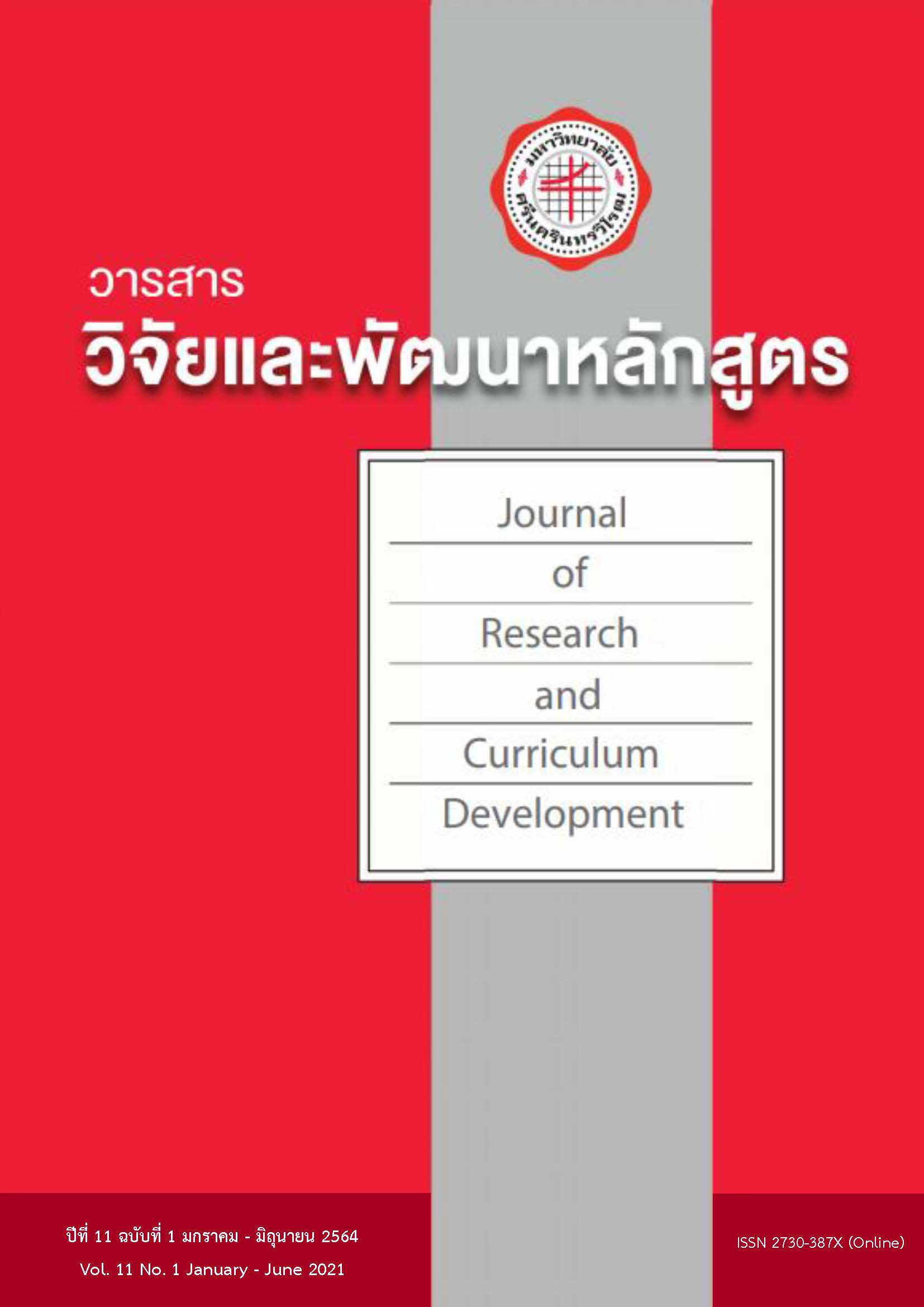การจัดการเรียนรู้เรื่องคุณธรรมและจริยธรรมสำหรับนิสิตนักศึกษาระดับปริญญาตรี
Keywords:
Ethical and Moral Instruction, Undergraduate StudentsAbstract
The aims of the current study are as follows: 1) to study moral and ethical education of undergraduate students in universities in Thailand and 2) to study moral and ethical education of undergraduate students in universities in foreign countries using qualitative methodology. The key informants consisted of 5 professors of general education courses whose primary purpose is to cultivate and develop moral and ethical awareness among undergraduate students and agree to join the focus group. Information relating to morality and ethics courses offered by foreign universities for undergraduate students was gathered from 12 universities’ websites (29 related courses) and 4 international databases (15 related studies) through document analysis. Data analysis, and content analysis for the data collection process. The results showed that: (1) the expected learning outcomes of morality and ethics teaching for undergraduate students in Thailand consisted of rational thinking, the ability to solve everyday problems, and an awareness of ethical living. The learning content comprised rational thinking, and morality and ethics for personal, community and social development. The learning outcome assessment methods consisted of examinations, classroom activities, CSR activities, class participation, and study of behavior; and the learning management methods included interactive lectures, active learning activities, and CSR activities. (2) Morality and ethics teaching for undergraduate students in foreign countries involved personal ethics and ethics at family, society, community, country and international levels, including ethical concepts and theories, philosophy and morality, and mostly required students to read and participate in classroom discussions, seminars, and presentations, and answer questions regarding ethics.
References
สำนักงานคณะกรรมการพัฒนาการเศรษฐกิจและสังคมแห่งชาติ. (2560). แผนพัฒนาเศรษฐกิจและสังคมแห่งชาติฉบับที่ 12 พ.ศ. 2560-2564. กรุงเทพฯ: โรงพิมพ์คุรุสภา ลาดพร้าว.
สำนักงานมาตรฐานและคุณภาพอุดมศึกษา. (2559). ประกาศกระทรวงศึกษาธิการ เรื่องเกณฑ์มาตรฐานหลักสูตรระดับปริญญาตรี พ.ศ. 2558. สืบค้นเมื่อ 20 พฤษภาคม 2562 จาก http://www.mua.go.th/users/bhes/front_home/criterion58/criterion_b58.PDF
สุมาลี ชัยเจริญ. (2557). การออกแบบการสอน หลักการ ทฤษฎีสู่การปฏิบัติ. ขอนแก่น: สาขาเทคโนโลยีการศึกษา คณะศึกษาศาสตร์ มหาวิทยาลัยขอนแก่น.
Arik, S. & Yilmaz, M. (2020). The effect of constructivist learning approach and active learning on environmental education: A meta-analysis study. International Electronic Journal of Environmental Education, 10(2), 44-48.
Beyleveld, M., deVilliers, J.J.R. & Fraser, W.J. (2019). The use of active learning in a private higher education institution: the lecturer’s perspective. South African Journal of Higher Education, 33(2), 16-28.
Marques, LMNS. (2018). Active methodologies as strategies to develop education in values in nursing graduation. Esc Anna Nery Rev Enferm, 22(3), 1-6.
Mintzes, J. J. (2020). From Constructivism to Active Learning in College Science. In: Mintzes J., Walter E. (eds) Active Learning in College Science. Springer, Cham. https://doi.org/10.1007/978-3-030-33600-4_1
Namadi, F., Hemmati-Maslakpak, M.H., Moradi, Y., Ghasemzadeh, N. (2019). The effects of nursing ethics education through case based learning on moral reasoning among nursing students. Nurs Midwifery Stud, 8, 85-90.
Robert, V. & Bullough, Jr. (2011). Ethical and Moral matters in teaching and teacher education. Teaching and Teacher Education, 27(1), 21-28.





